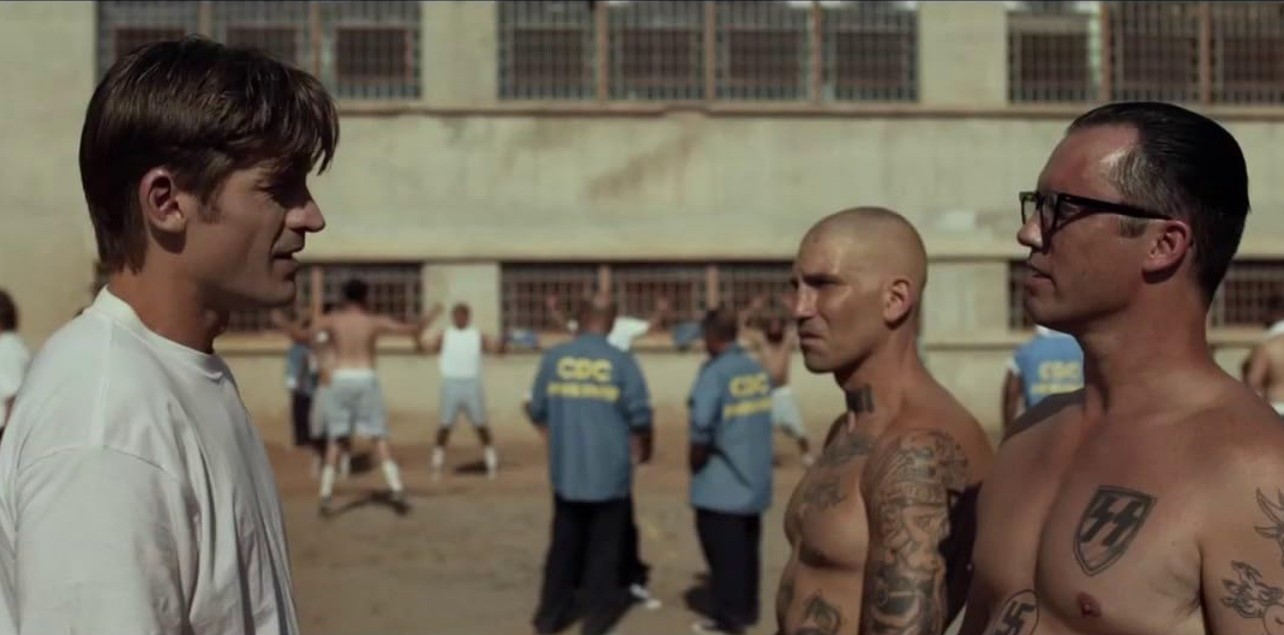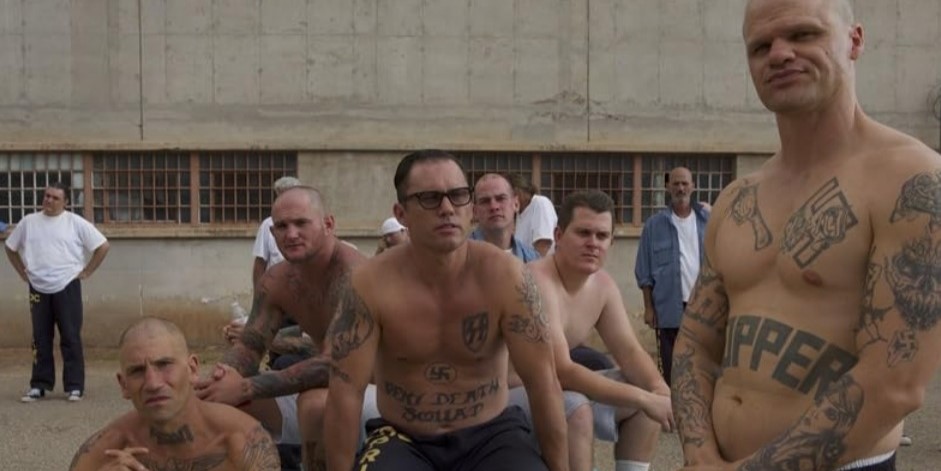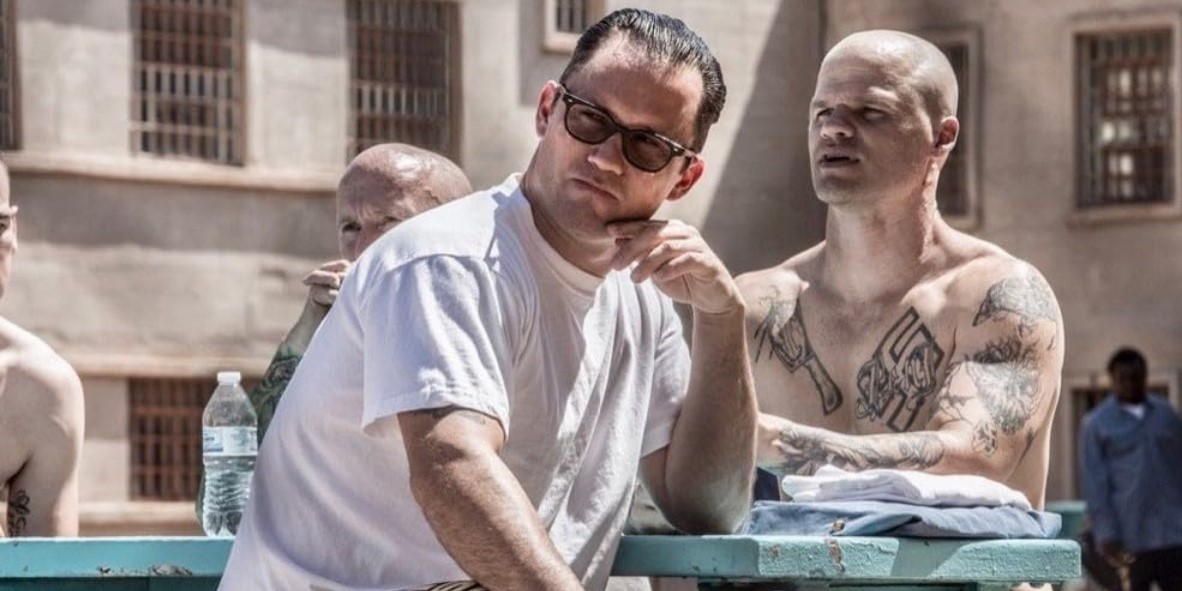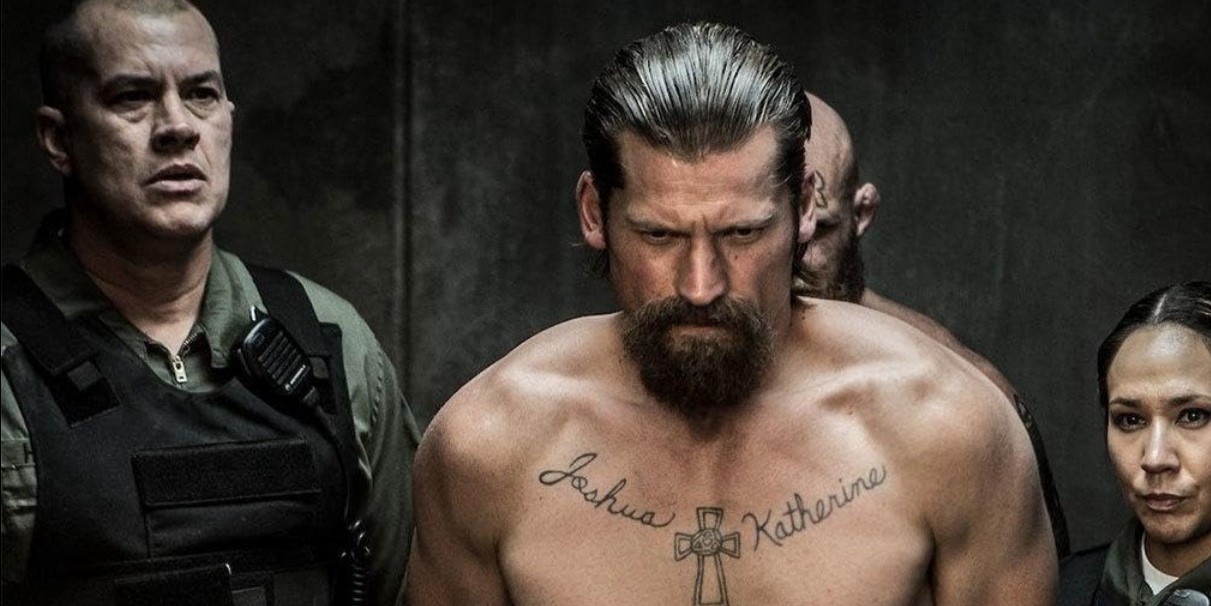With Ric Roman Waugh at the helm, ‘Shot Caller’ narrates a nightmare scenario of a drunken mistake landing a family man in prison, forcing him to adapt to its harsh environment, and changing him irreversibly. Jacob is a white-collar professional who is living an idyllic life with a beautiful family and a large house. Driving home one night with his close ones, he causes a car accident resulting in his best friend’s death and a prison sentence for vehicular manslaughter.
Upon entering prison, Jacob’s bleak situation is made clear to him by a fellow inmate: become a warrior or a victim. He starts to toughen out, and in order to survive the gang-based order of his new world, joins the Aryan Brotherhood prison gang. As one compulsion leads to the next, Jacob adopts the gang name, Money, and finds himself losing his moral core. The 2017 film is a harrowing depiction of the prison system and one man’s unfortunate journey, begging the question – is it based on a true story?
Shot Caller is a Story about Flawed Prison Systems
‘Shot Caller’ is driven by a fictional story inspired by writer-director Ric Roman Waugh’s two years of undercover work as a voluntary parole officer. It is a film that sticks to realism and authenticity with a religious fervor. “It’s a story that happens to a lot of people in the prison system and the fact is it’s a story about a broken system,” attested actor Nikolaj Coster in an interview. “The thing is almost 2/3 of people that are put away, re-offend, and often they go on to a worse crime.” Devoted to presenting as authentic a portrayal as possible, Waugh chose to shoot the movie in a real-life, functioning prison in New Mexico.

Waugh went undercover and was recruited as a parole officer to get a comprehensive and unfiltered view of the prison systems of the country. His new colleagues were unaware of his status as a filmmaker, and he was treated as a rookie on the job. Through his time around the rough end of the legal system, Waugh was made privy to multiple shocking realities. Despite the presence of prison security, it was the gangs inside that ran the place, as well as the street crime outside. There was a shot caller or gang leader for every cell block, yard, and one for the entire prison.
The convicts were incredibly respectful of the established hierarchy, and the shot caller commanded his entire gang and race with ruthless efficiency. These elements of real-life prison cultures and structures found their way into ‘Shot Caller,’ which is the third movie in Waugh’s prison trilogy after ‘Felon’ and ‘Snitch.’ He worked on the films after his undercover days, and when wrapping up ‘Snitch,’ came up with the idea for ‘Shot Caller.’ Wanting to create a movie about a family man who inadvertently ends up in prison, the director reached out to his producer, Jonathan King, who developed the movie’s script with him over the next three years.

Jonathan King and Ric Roman Waugh discussed films like ‘Mean Streets,’ and ‘End of Watch,’ which authentically portrayed police culture. Since Jacob undergoes a complete transformation, they drew inspiration from McConaughey’s character in ‘Dallas Buyers Club,’ as he becomes unrecognizable by the end. When it came to prison culture itself, the two discussed works like ‘Un Prophete’ and ‘Oz,’ while continuing research into the subject matter.
‘Shot Caller’ becomes even more grounded due to its protagonist’s relatability. Anyone can imagine themselves getting into an unfortunate scenario like Jacob. And when confronted with a do-or-die situation in prison, we are forced to ask ourselves – would we do anything different from what he did? Lending weight to this narrative is the uncomfortable reality of overcrowded prisons in the country, and worrying statistics pointing to them serving as training grounds for increasingly seasoned criminals.

“We’re all capable of making a mistake one day. You’re not paying attention, driving, texting, and all of a sudden you kill someone who was crossing a crosswalk,” reflected Jeffrey Donovan in the aforementioned interview. “You take a plea deal and you say, `Okay I’ll take 10 months of prison.’ But because you killed someone, you go to a Level 3, which is where all the murderers are. And your life is over. I don’t think there’s been a movie that shows you that is a possibility in anyone’s life, today.”
‘Shot Caller’ uses Jacob’s relatable story in presenting a raw and grueling look at prison systems, their culture, and their absolute nature. The filmmakers took note of various classics while writing the movie’s script, while also studying real-life examples. The film, although fictional, has profoundly deep research behind it, with the director’s personal experience as a parole officer building its narrative foundations.
Read More: Is Snitch Based on a True Story?


You must be logged in to post a comment.